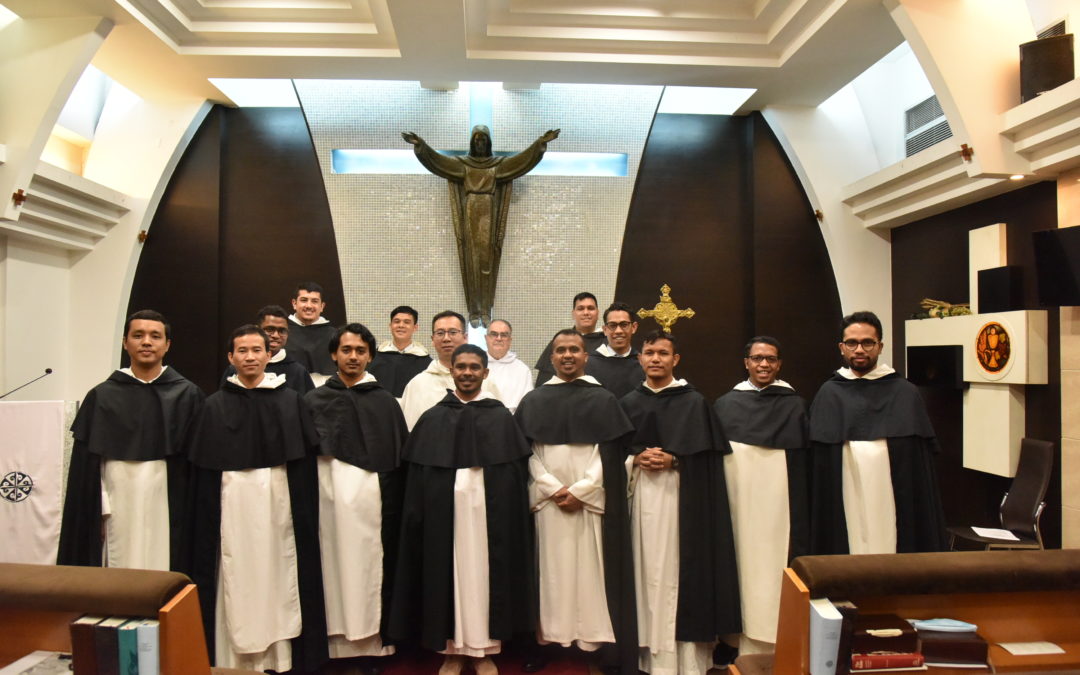On 21 June 2021, a group of 13 Dominican Student Brothers had their profession renewal in Macau. They promised obedience, chastity, and poverty to God, although only one of the three evangelical counsels Obedience is mentioned in the Dominican Order. This event has brought home to my mind a few thoughts that I wish to share in these lines.
Promising obedience to God means submitting ourselves to Him, listening to Him. In fact, the word “obedience [from the Latin ob-audire] means, in the theological reflection, listening. Listening to God is a way to express our intimate relationship with Him who has spoken and keeps calling to each of us through our hearts and minds. The Lord has called to follow Him in a special way; that is why we name it vocation and it is a privilege, a divine gift.
In promising obedience to God, we do not lose our freedom; rather we regain it! Why? Because we say yes to Him freely, without force or fear. Truly, there are renunciations in it, like other people (for instance, in marriage, in social duties) or like in the case of Jesus, who sought the will of his Father as the food who nourished his life; even in the difficult moments of the cross, he kept bedient until death seeing in such obedience a loving gift. Our religious renunciation does not mean losing our freedom? On the contrary, in the Christian understanding, religious obedience to God implies an intimate relationship with God.
God calls us since we were born: You did not choose me but I chose you (John 15:16); each of us has received from birth a special gift from God. He already knew what we were going to be in the future, while we when we are only dreaming to become someone as we grow old. Our parents may choose to have us, but they cannot choose what we are to be.
So, our Profession Renewal or Vows renewal simply means looking forward to our solemn profession, which is made until death. Religious life is a radical following of Jesus’ poor, chaste, and obedient. All things were done by Jesus according to His Father’s will. In the Garden of Gethsemane, His obedience was demonstrated by His acceptance of the cup of suffering. Throughout the Gospels, Jesus seeks the will of His Father in prayer. Obeying for him did not mean submission to tyrannical power, as it is the connotation in contemporary society. Obedience for Jesus was really an act of trust in His Father. Proportionally in our case, when we obey our religious superiors do so because we trust that, as legitimate authorities, they have our best interests at heart – leading us to what we could not or would not otherwise pick by ourselves.
For instance; I may be unwilling to obey traffic laws, but I trust they exist to protect me and people. This statement is indeed true because, in my driving, I could be so selfishly speeding toward my destination that I might not think of the safety of other people. To remind me that this should not be the case, the trusted authorities enact laws. In the same way, Jesus obedience was an expression of love and active trust. It is exactly the same love and trust that the religious profess when taking their solemn vow of obedience. Indeed, their vow of obedience is really a vow of trust in God first and foremost, even if they promise it also to their constituted religious superiors. The freedom they have regained is their full dedication to God’s service.
Bro. Cesar De Sousa OP.

